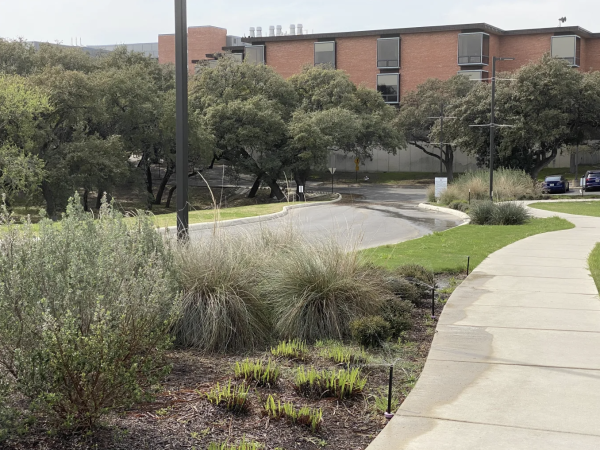‘Academic freedom’ must be fair to all
There is no method of adequately listing or defining the variety of lessons taught to us by the pandemic. Professors, staff and students alike faced and are still facing challenges unlike those we had, for the most part, managed to balance before. Yet in some cases, former expectations of student performance have been worked back into syllabi and our day-to-day.
Strict attendance policies are back in some classrooms and the pass/fail and add/drop deadlines are as early as they were in years past. Professors have been encouraged to be flexible, to consider the ongoing pandemic when designing their courses and establishing their attendance and participation policies. But that’s all that it has been: A recommendation.
The challenges being faced by students now are not new on paper — it is visible in the manner that some professors have resumed establishing class expectations identical to those that existed pre-pandemic. But the environment in which we have been tasked with approaching these challenges is vastly different; a change that has gone unrecognized or simply ignored by some.
Our Student Government Association has for weeks now been drafting ideas on changes that can be made for students facing adversity and extenuating circumstances. The definition of extenuating circumstances was noted to be case-by-case, but included instances of serious illness (mental or physical) and family death. Their suggestions are not confined to the present, a time of imbalance due to the pandemic, but meant to extend further and benefit all students, current and future.
And these suggestions were met with the unfortunate truth that little can be done.
Professors can’t be told what to do and what not to do when designing their courses due to the implications of academic freedom, as outlined in the Faculty Handbook. There are exceptions, such as regulations established by the Americans with Disabilities Act, but those are far and few in-between, nor are they adequate enough in some cases.
We must ask ourselves: At what point does academic freedom for faculty become an excuse for placing unattainable academic restrictions on the very students paying to attend the university?
Students should not be penalized for missing class when they are sick. Being out sick for a midterm does not warrant a zero for 15-30% of a student’s grade, nor do 2-3 sick days warrant being told that you must drop (or at this point withdraw) from the class. And yet, these situations come to light every semester, even more so during the pandemic. A time where understanding and forgiveness are practiced far less than they are preached.
Students are exhausted. Students are frustrated; overworked and overwhelmed. The expectation put in place by some professors that we can go about ‘business as usual’ because we are back in person is, to put it simply, unjust.
And who’s to say that ‘business as usual’ worked in the first place? Strict attendance policies have been ableist and harmful for as long as they have existed; not just during the pandemic. The pandemic being deemed as “over” by some just because we are back in person does not warrant a return to the methods that failed and overworked students in the first place.
As of 2019, the university four-year graduation rate was at 69%. A rate that is safe to say might have declined due to the challenges put on students during the pandemic, leading some to transfer, others to take a semester off and others to drop out completely. Compared to institutions of similar size and category, our graduation rate is low. And, a four-year graduation rate that is 20% lower than some of the universities that Trinity hopes to join the rankings of next year if granted a division change in U.S. News’ “America’s Best Colleges” assessments.
Although we just got through midterms, finals are approaching quickly and course registration is about to begin for spring 2022. As we head into a new semester and the challenges that come with it, do not hesitate to make use of the resources that do happen to be available at our university, such as Academic Affairs and Student Accessibility Services. Stand up for yourself and your own academic freedom — because if we have learned anything this semester, if you don’t, who will?





Monica • Nov 1, 2021 at 8:04 am
I had dropped out of trinity and transferred to a different university almost 7 years ago because I ended up failing two courses I struggled in my second year (mind you my degree had us take 17 hours) and was on an academic scholarship. The workload then was awful to where I stayed up till 2 almost weekly finishing work for classes and had a breakdown almost once a month. Once I transferred I was much better off, not only was the school I transferred to cheaper, I was closer to family, the students were mostly locals (one “background noise” of trinity was how white it was), but faculty encouraged students to take courses during our summers so we wouldn’t have as large of course loads during the regular semesters. Taking summer courses at trinity even if the courses I need to retake were available, would’ve been near impossible for me financially. I can only imagine how stressed students have been during the pandemic and returning to a so-called normal.
Matt • Oct 29, 2021 at 10:55 am
Not sure how many times I can clap for this, but whatever that number is is not enough. I’ve seen a lot of stress and weariness from other students in the past few weeks, there’s certainly been a psychological toll of returning to a normal schedule while everything else still isn’t “normal”. Very well put.